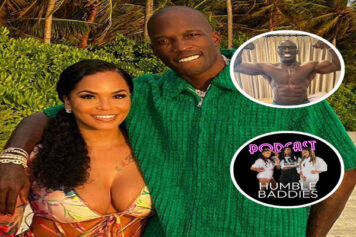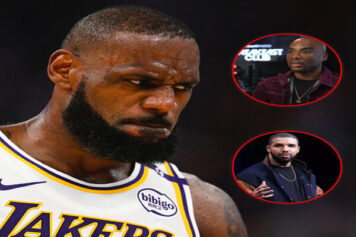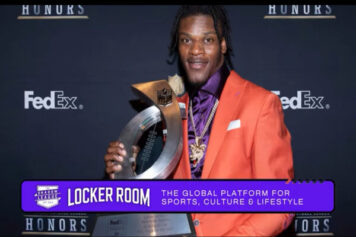We sat down with the youngest of Shafts for a sit-down interview.
For some people, actor Jessie T. Usher appears to have popped up overnight. But those in the know are aware of all the hard work it takes for anyone to one day appear in a marquee alongside names like Samuel L. Jackson and Richard Roundtree.
Usher has been trying to make it big in Hollywood since he was a kid. With the recent release of the action comedy Shaft, written by Kenya Burress, directed by Tim Story and starring Jackson, Roundtree and actress Regina Hall, Usher stars alongside talented veterans who can help the young actor shine.
The Shadow League was spoke with the young Shaft star about carrying the famous last name for the millennial generation.
TSL: What was it like carrying the Shaft name for a millennial audience?
Jessie T Usher: “To be honest, there’s a lot of conversation about millennials amongst ourselves, among other generations and there’s a lot of outside influences and opinions that are constantly changing millennials,”
“I feel like they’re at war with their reputation and things like that. I wanted that complexity to be shown in the film as best as we could because, you know, the character could have been very one dynamic, or he could have been what we ended up making which was liberal and sensitive but hardheaded, you know.”
TSL: What was it like working with so many cultural giants on the set every day?
Jessie T. Usher: “It was a collaborative effort, it was like a group project where you got a chance to do it with the teachers, which was amazing to me. The fact that I had Sam to talk to, Richard to talk to, then we have Kenya Burres and Tim Story, who come in with a brand new idea, and John Davis who wanted to make it a comedy.
We have all these different opinions about what this character can be and what this character is becoming. It’s just a nonstop creative effort. The neurons were firing constantly. It was ever-changing, it was revolutionary. As much as we had a great time shooting it, we had a blast.”
TSL: What was your knowledge of the importance of the Shaft mythos to African-American culture prior to shooting and how did that inform your portrayal of Shaft Jr?
JTU: “I knew from the very beginning! The first scene that we were shooting. I came in, and did a little research, and saw the depths of the character and the story and the tone of the previous Shaft projects, and I brought a little bit of that with me, but Tim wanted me to bring a different version, because Sam was going to bring that and Richard was going to do that. So they wanted me to bring something different.”
TSL: I think, in many regards, this movie is tame by historical measures. However, due to language, themes, and sexually suggested comedy troupes, a great deal of care had to be undertaken as not offend the audience.
JTU: “There are some racy things in this film that have to be done in a certain way so people won’t get offended. There has to be that way so they can still laugh and enjoy the movie because that’s what it’s really about. We wanted to make a film that everybody’s going to enjoy no matter what generation you’re in.”
TSL: The word “muthaf****” is almost as big a star in this movie as Samuel L. Jackson. Also, Shaft was the original “baaad muthaf*****”
JTU: “It still hits the same way, even today. When Sam says it, it hits a certain way. When Sam says it, it has a certain feel to it. When I felt it, I felt a certain way. It got to a point where I’m slinging it out there in another film, now I understand the weight of it. You gotta understand what it is. It ties everything together. Because, like you said, Shaft is a badmuthaf***** I don’t care what nobody says.”
TSL: The capoeira scene at the club is one of the funniest in a pretty funny movie. Some of those moves weren’t a novice at all. Are you a martial artist?
JTU: “I like to stay pretty active. I did martial arts most of my life, but never capoeira though. It’s entirely different. So, bringing that into it was a whole different animal. I had to start from scratch. I’m physical enough to be able to pull that off in a short amount of time. But there’s a lot of different things that were brought in from different people about what a millennial is and how a millennial is represented.”
It was my place to step up and say, even as a millennial, ‘We would never do this, we would never do that, we would never say this, we would never say that.’ Somethings we just don’t mine. I know a lot of people thing millennials are ultra-sensitive but on a lot of things we’re not. We just want our voice to be heard. That’s all!”



